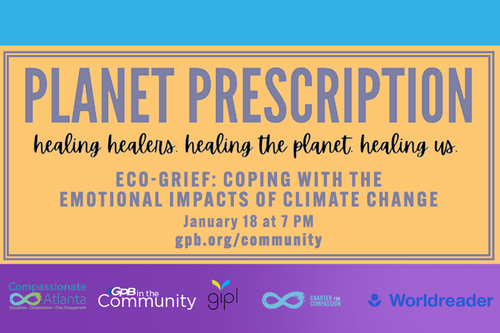Section Branding
Primary Content
Eco-Grief: Coping with the Emotional Impacts of Climate Change

Climate change is increasingly recognized to pose a variety of threats to human health, including mental health and well-being. Join GPB, Compassionate Atlanta and Georgia Interfaith Power & Light for an interactive dialogue including actionable steps that we can take as individuals to find hope as we care for the planet.
7 - 8:15 p.m.
Facing the realities of forest fires, extreme weather events, pollution and other forms of environmental degradation on top of a global pandemic can be a daunting task. The mental health effects of climate change may occur directly due to natural disasters and extreme weather events such as floods or wildfires, but may also be felt indirectly through long-term, secondary stressors such as less secure food supply and housing insecurity. Research indicates feelings of sadness and guilt, anger, hopelessness and fear reported by individuals surveyed in several countries. Recognizing and dealing with these emotions is important.
Join us for a virtual interactive dialogue during which experts will share coping mechanisms and actionable steps we can take individually to care for the planet and for ourselves.